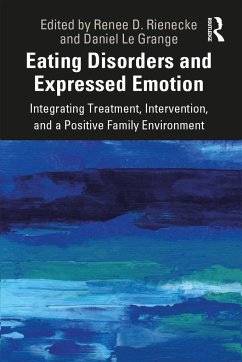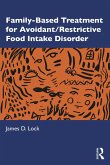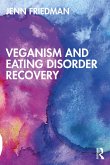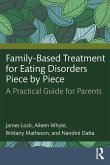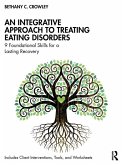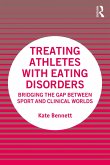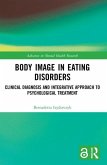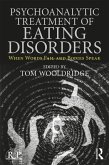The first to synthesize the exponentially growing research on expressed emotion (EE) and eating disorders and apply it to treatment, interventions, and other scenarios, this unique text provides unprecedented guidance to students, clinicians, and researchers in the field of eating disorders.
This book explores the components of relatives' attitudes and behaviors toward an ill family member and discusses a modifiable treatment target that could improve outcomes for patients through interventions, treatment plans, and future directions in research. Chapters bring together contributions from eminent scientists and clinicians in the fields of families, eating disorders, and treatment to contribute to the clinical and scholarly understanding of expressed emotion and eating disorders.
Mental health professionals studying and treating eating disorders will find this text to be a valuable reference guide and will be inspired to further explore this rich and promising area of study.
This book explores the components of relatives' attitudes and behaviors toward an ill family member and discusses a modifiable treatment target that could improve outcomes for patients through interventions, treatment plans, and future directions in research. Chapters bring together contributions from eminent scientists and clinicians in the fields of families, eating disorders, and treatment to contribute to the clinical and scholarly understanding of expressed emotion and eating disorders.
Mental health professionals studying and treating eating disorders will find this text to be a valuable reference guide and will be inspired to further explore this rich and promising area of study.
Endorsement 1:
"Rienecke and Le Grange present a scholarly synthesis of research on expressed emotion in families - a critical factor in many forms of psychopathology including eating disorders. Expressed emotion is a demonstrated moderator of treatment outcomes as well as a variable worthy of intervention efforts in its own right. From the origins of the study of expressed emotion to recent, novel applications and emerging new findings, this book represents a definitive compilation on the topic that is essential for the libraries of clinicians and researchers alike."
Katharine L. Loeb, PhD, professor of Psychology, PhD Program in Clinical Psychology, Fairleigh Dickinson University.
Endorsement 2:
In this volume, Drs. Rienecke and Le Grange provide an essential examination of the concept of expressed emotion among individuals with eating disorders and their family members. Chapters authored by research and clinical experts systematically disentangle the complexity of expressed emotion through comprehensive literature reviews, rich case examples, and innovative theoretical conceptualizations. State-of-the-art information about cultural influences, measurement considerations, treatment approaches, and research priorities deepen the reader's understanding of these interactional patterns as well as the importance of contextual factors. An extremely valuable resource, this book provides a critical perspective to understanding relational aspects of eating disorders that can help guide us toward effective interventions for those suffering from eating disorders and their families.
Carol B. Peterson, PhD, associate professor of Psychiatry, University of Minnesota
Endorsement 3:
Despite recent advances in our knowledge and understanding of the role of Expressed Emotion (EE) in the field of eating disorders, gaps unfortunately remain. Like never before, this group of eminent scientists and clinicians have shared their collective knowledge and experience to produce a very valuable book. Where this book comes into its own, is its aim to further our understanding of EE from both a scholarly and clinical perspective. It is clearly and concisely written and is full of valuable clinical advice. This book is a must read for researchers and clinicians alike and I have little doubt that it will stimulate much needed innovative research in this domain in the years to come.
Stephen W. Touyz, PhD, professor emeritus, School of Psychology and Inside Out Institute, University of Sydney.
"Rienecke and Le Grange present a scholarly synthesis of research on expressed emotion in families - a critical factor in many forms of psychopathology including eating disorders. Expressed emotion is a demonstrated moderator of treatment outcomes as well as a variable worthy of intervention efforts in its own right. From the origins of the study of expressed emotion to recent, novel applications and emerging new findings, this book represents a definitive compilation on the topic that is essential for the libraries of clinicians and researchers alike."
Katharine L. Loeb, PhD, professor of Psychology, PhD Program in Clinical Psychology, Fairleigh Dickinson University.
Endorsement 2:
In this volume, Drs. Rienecke and Le Grange provide an essential examination of the concept of expressed emotion among individuals with eating disorders and their family members. Chapters authored by research and clinical experts systematically disentangle the complexity of expressed emotion through comprehensive literature reviews, rich case examples, and innovative theoretical conceptualizations. State-of-the-art information about cultural influences, measurement considerations, treatment approaches, and research priorities deepen the reader's understanding of these interactional patterns as well as the importance of contextual factors. An extremely valuable resource, this book provides a critical perspective to understanding relational aspects of eating disorders that can help guide us toward effective interventions for those suffering from eating disorders and their families.
Carol B. Peterson, PhD, associate professor of Psychiatry, University of Minnesota
Endorsement 3:
Despite recent advances in our knowledge and understanding of the role of Expressed Emotion (EE) in the field of eating disorders, gaps unfortunately remain. Like never before, this group of eminent scientists and clinicians have shared their collective knowledge and experience to produce a very valuable book. Where this book comes into its own, is its aim to further our understanding of EE from both a scholarly and clinical perspective. It is clearly and concisely written and is full of valuable clinical advice. This book is a must read for researchers and clinicians alike and I have little doubt that it will stimulate much needed innovative research in this domain in the years to come.
Stephen W. Touyz, PhD, professor emeritus, School of Psychology and Inside Out Institute, University of Sydney.

